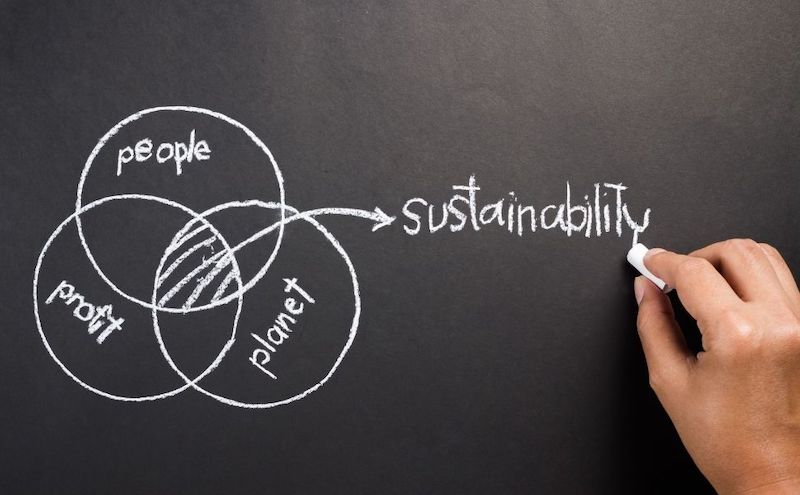Circular economy, zero waste, and sustainability are all the buzz these days, and for good reason. Consumerism is at an all-time high, which means a higher demand for natural resources and an increased amount of waste to manage.
Sustainability is the ability to maintain a balance between what society needs without compromising the environment. The broad definition of sustainability is subject to interpretation and often leads to solutions designed to target a single issue.
Human-caused environmental burden is most commonly discussed in sustainability. However, designing solutions to these issues cannot be done in isolation.
Our economy is a complex system made up of many parts working together. This means, that one area cannot be changed without understanding how it will influence another area, for example, the people involved or the economics.
The “three pillars of sustainability” include social, environmental and economic factors that ensure social and economic prosperity with minimal ecological impact. These pillars provide a framework to apply a solution-based approach to complex sustainability issues.

The three pillars of sustainability
Social Sustainability
Social sustainability supports values that promote respect and fairness for the individual rights of all employees, stakeholders and the community in which it operates. This includes human health, equal opportunity, education and cultural diversity, among other important social needs.
Incorporating social sustainability in business can include prioritizing employee retention and engagement through work-life balance, fair wages and good benefits or career development opportunities and incentives.
Promoting social sustainability in business can have a ripple effect that fosters economic and environmental sustainability.
Investing in the well-being of employees and community members is likely to generate economic benefits through increased productivity from motivated employees and growth of a resilient local economy, and environmental benefits from increased public awareness of healthy lifestyle choices such as choice of diet.
Economic sustainability
Economic sustainability promotes responsible production, distribution and consumption of goods and services and is an important part of the circular economy.
The goal of the circular economy is to develop economic systems that provide ethical employment and profitability while limiting the environmental impacts of production.
The cost-benefits of responsible production may include reducing waste management costs with recycling, operating costs by reducing energy consumption and water, or material costs by using a waste stream as product inputs. Even better, the cost savings of these benefits can offset operating costs.
Prioritizing economic sustainability provides stable jobs, which supports the well-being of employees, and stimulates the economic growth of a community. It also promotes environmental sustainability by reducing production and distribution impacts.
Environmental Sustainability
Environmental sustainability is the most common pillar of the three. It aims to protect the environment by reducing risks and measuring the impacts of business activities and products or services.
Implementing environmental sustainability practices ensures water quality protection from industrial pollution, soil quality from waste pollution, and air quality from greenhouse gas emissions.
The natural environment provides the essentials for human health – food, water and shelter. Thus, conservation and protection of the environment are linked to social sustainability. In addition, responsible use of finite natural resources fosters economic sustainability for future development.
Why incorporate the pillars of sustainability?
The three pillars can be used to incorporate sustainability into business practices that support the well-being of your employees, optimize your business’ budget and ensure your business is working to reduce its environmental impacts.
If you’re not sure how to start your sustainability strategy, let’s chat! Reach out via email or book a call.




